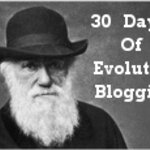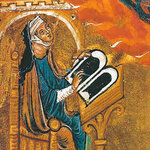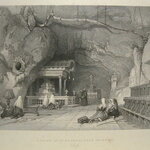
Tomorrow is Sunday, and as I prepare to mount my plastic pulpit I will take as my text the introduction to Chapter 5 (Complex Numbers) of A Survey of Modern Algebra by Birkhoff&Mac Lane. This is a classic and accessible work, first published in 1941, which brought to the American-speaking world what was previously locked up in Van der Waerden’s Moderne Algebra (1931). The chapter opens with the definition of a complex number and the field C [1], and then continues:
We owe the above definition not to divine revelation, but to simple algebraic experimentation. First, it…





